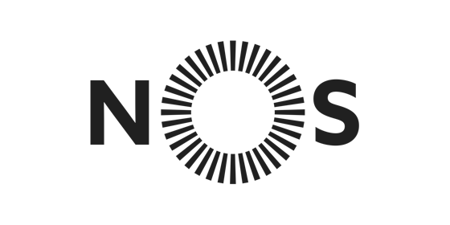
Client:NOS
Industry:Telecommunications
Region:Europe
RPA Brings Simplicity and Quality to Customers and Employees at NOS

>125
separate processes automated since May 2018
2 days
Discount card approval process reduced from 2 weeks to 2 days
>150
processes on the development roadmap
>40
internal staff converted into RPA developers
~75K hrs
returned annually to the business
Client Overview
NOS, the leading communications and entertainment group in Portugal, is a responsible and future-oriented organization. NOS is currently undergoing a transformation of its operating model focusing on customer satisfaction, new ways of work and operational fitness.
Portuguese telecom and entertainment leader, NOS, introduces RPA as part of an enterprise-wide transformation project. Its innovative approach to process automation delivers benefits to customers and staff.
To continue to deliver excellent customer experience, NOS realized it needed to transform the way its business operated. From call centers to field engineers and finance teams, change initiatives were put in place to improve and optimize its operations. Robotic process automation (RPA) has quickly become a key enabling technology for this transformation. NOS is working with UiPath to drive an innovative approach to RPA implementation.
When you speak with Misael Viana, RPA Lead at NOS, the word that you most often hear is "transversal." At NOS, RPA is to be deployed wherever there is potential to be captured. The company didn’t want to begin with a small pilot and slowly build into production. Instead, it wanted everything to move towards production straightaway. The company developed its RPA roadmap prioritizing areas where the technology would have the most impact.
Viana says: “We plotted a transversal path for RPA that was designed to implement automations in all departments from the beginning. We wanted not only to concentrate on our three largest functions—finance, customer care and commercial services—but also enable other departments to start their RPA journey as quickly as they felt able. That required a new way of thinking that I haven’t seen in any of the RPA textbooks.”
RPA: start with people before technology
From the very beginning, at the start of 2018, a multi-disciplinary team lead by Viana was created to define and implement the RPA strategy. They decided that an essential aspect of the RPA program was to train the right people with the skills they need to build successful automations. However, these would not sit within a central RPA function but be part of the individual departments, close to where the operational processes are.
In effect, each department has its own RPA team and is responsible for creating, developing, managing, and supporting its own autonomous RPA program.

To achieve this, the first step was selecting the right RPA platform for the company. NOS chose UiPath for its comprehensive range of RPA capabilities and it facilitated the process of scaling automations. The next step included recruiting and training RPA developers from within the organization and appointing program managers for each department.
“The secret to our success has been the program managers. I always say that this is where the magic happens. They are responsible for managing every aspect of RPA development, deployment and support for their department. They build the pipeline, prioritize the processes, oversee the development, everything. We’ve created a devolved infrastructure where we can be extremely agile in identifying and automating processes,” comments Viana.
Establishing the devolved robotic operations center
At the core of the RPA program for NOS is a devolved center of excellence (CoE). The CoE is there to ensure the quality and consistency of automations happening in the other departments, to share best practices, and to keep evolving RPA skills within NOS.
“The CoE is there to embed RPA deeply and effectively into the organization, and to redistribute accumulated knowledge and resources across future deployments. As we only work with UiPath, we have been able to draw on their extensive information on RPA’s best practice and methods to disseminate ways of working that deliver consistent, high-quality automations quickly,” comments Viana.
That’s something that the company has definitely proven. In the first wave of automation—including the identification of process, training of personnel, establishing the CoE, and the RPA development—which ran from May to October 2018, the company was able to develop and deploy 40 automations into production.
As we only work with UiPath, we have been able to draw on their extensive information on RPA best practice and methods to impose ways of working that deliver consistent, quality automations quickly.
Misael Viana • RPA Lead at NOS
So, what were the ideal automations for NOS? Viana says: “The ideal is the high-impact process that is already standardized and optimized, attached to systems that are stable. If any company actually has a process like that I’d love to know because the reality is always more complex. We understood that we’d need to re-engineer some of the processes to fit with how the robots work. So, we identified processes not based on how easy they are to automate but based on the return for the business and outcome for our customers.”
Taking mundane tasks away from staff to free them for more rewarding work. Delivering faster and more accurate service to customers. That’s the sweet spot for RPA and it’s where we’ve seen the benefit.
Misael Viana • RPA Lead at NOS
As is befitting of the NOS approach, the company is working with both attended and unattended robots. Within the finance department, unattended automations were created to automate areas such as invoice and purchase order (PO) processing. Attended robots were deployed to support call center staff in areas such as checking customer data in different systems.
“RPA isn’t really about the technology. Once you’ve a bit of experience it’s not that difficult to create automations. So, it becomes more about the business advantages RPA brings and the commitment of the stakeholders to capture such benefits. Taking mundane tasks away from staff to free them for more rewarding, high-value adding work. Delivering faster and more accurate service to customers. That’s the sweet spot for RPA and it’s where we’ve seen the benefit,” says Viana.
RPA success depends on stakeholders
Today, NOS is in its second wave of RPA that has seen over 120 processes automated across dozens of departments. Viana estimates that this level of automation has been responsible for returning around 75,000 hours back to the business annually so far. This has meant that employees are able to spend more time with customers or undertake higher value adding activities.
“Staff are very important in RPA implementation because process automation is powered by RPA but driven by people. First, each department is able to propose staff to get training on RPA development. And it is rewarding when we realize that the majority of RPA developments are made by our colleagues, and when we see the enthusiasm of an operational performer propose the next best process for automation,” says Viana.
However, Viana points to two other stakeholder groups that have been fundamental to the success of RPA at NOS: the IT team and senior management.
We send out a satisfaction survey to every process owner after an automation has gone into production. In the past, we have received an average score of nine out of ten. In the past month, this has risen to 9.2. I think this shows that our robots are working and we’re getting better at producing them.
Misael Viana • RPA Lead at NOS
He says: “RPA is different from IT but you really need close cooperation with your IT team. We have an IT representative within our CoE. IT knows the infrastructure and the corporate systems. They can tell you how best to develop a robot for a specific system or which systems are changing or retiring so you can better plan the automation efforts. A good working relationship helps ensure higher quality, more effective automations. It has also enabled us to combine the power of RPA with APIs, delivering faster and more solid automations”
It’s clear that RPA, like any other change program, is more likely to succeed with board-level sponsorship but, for NOS, it’s back to that word "transversal."
Viana explains: “The commitment of senior management is visible since the early days. The executive board has elevated RPA to a strategic level, which helped us move faster by removing obstacles and to build awareness among all departments. Whenever I approached a department head the conversation was never 'should we do this in our team?' but rather 'how do we get started and what can I do to help?' The result is that scaling up our RPA ambitions has been a truly company effort."
Achieving success, meeting objectives
So has RPA brought simplicity and quality to NOS and its customers? Certainly, the feedback from the various departments within NOS has been very positive as Misael explains: “We send out a satisfaction survey to every process owner after an automation has gone into production. In the past, we have received an average score of nine out of ten. In the past month, this value has risen even higher. I think this shows that our robots are working and we’re getting better at producing them.”
RPA is not only changing the way we work but also the opportunity to transform our processes and reskilling our teams to be focused in our clients.
Misael Viana • RPA Lead at NOS
Customers are also benefiting. For example, telco customers receive discounts when attending NOS cinemas. Customers must apply and have their application accepted before receiving the discount card. The approval process used to take two weeks. Now, the process is digital first, via a NOS customer app, where a robot performs most of the administrative tasks and customers receive their cards via the app within two days.
“RPA is not only changing the way we work but also transforming our processes and reskilling our teams to be focused in our clients,” concludes Viana.
Related case studies
Ready for your own case study?
Speak to our team of knowledgeable experts and learn how you can benefit from agentic automation.





